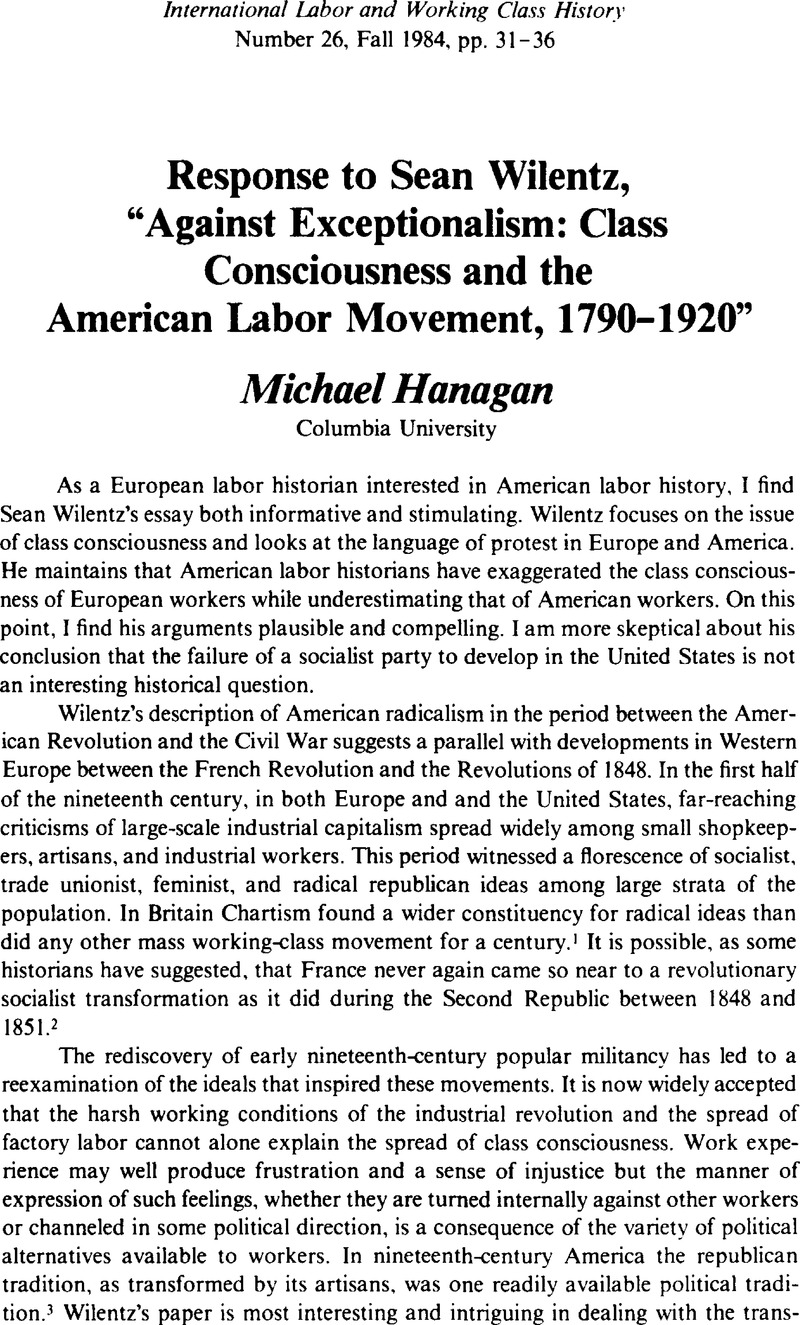No CrossRef data available.
Article contents
Response to Sean Wilentz, “Against Exceptionalism: Class Consciousness and the American Labor Movement, 1790–1920”
Published online by Cambridge University Press: 16 December 2008
Abstract

- Type
- Scholarly Controversies
- Information
- Copyright
- Copyright © International Labor and Working-Class History, Inc. 1984
References
1. On Chartism see, Thompson, Dorothy, The Chartists: Popular Politics in the Industrial Revolution (New York: Pantheon,1983).Google Scholar Jones, Gareth Steadman, has presented a very interesting reinterpretation of Chartism. “Rethinking Chartism”in Languages of Class: Studies in English Working Class History 1832–1982 (Cambridge: Cambridge University Press, 1983)pp. 90–178.Google Scholar An interesting criticism of the limitations in the historical approach of many English labor historians is that by Floud, Roderick, “Quantitative History and People's History: Two Methods in Conflict,” Social Science History 8 (Spring 1984), 151–168.Google Scholar
2. This argument is suggested byJudt, Tony, Socialism in Provence1871–1914: A Study in the Origins of the Modern French Left (Cambridge: Cambridge University Press, 1979).Google Scholar
3. SeeLudtke, Alf, “Cash, Coffee–Breaks, Horse–Play: ‘Eigensinn’ and Politics among Factory Workers in Germany around 1900,” in Proletarians and Protest: Studies in Class Formation, eds. Hanagan, Michael and Stephenson, Charles, (New York: Greenwood Press, forthcoming).Google Scholar
4. For an interesting attempt by a modern Marxist to define “class consciousness,” seeHobsbawm, E.J., “Class Consciousness in History” in Aspects of History and Class Consciousness,ed. Meszaros, Istvan, (London: Routledge ' Kegan Paul, 1971), 5–21.Google Scholar On the importance of organization see, Hobsbawm, E.J., “Should the Poor Organize,” New York Review of Books25 (03 23, 1978).Google Scholar
5. Figures on socialist votes were found in Cook, Chris and Paxton, John, European Political Facts 1848–1918 (New York: Facts on File, 1978).Belgium was omitted from this list because the joint slate presented by the Liberal Party and the Parti ouvrier Beige in 1912 made it impossible to isolate the socialist votes; in the general election of 1900, when the Belgian socialist party ran an independent slate it received 22.5% of the voteGoogle Scholar
6. Aminzade, Ronald, Class, Politics, and Industrial Capitalism: A Study of Mid-Nineteenth Century Toulouse, France (Albany: SUNY Press, 1981).Google Scholar


